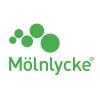A newly-released ‘State of the Nation’ report has led to calls for urgent action to reduce the potentially devastating impact of surgical site infections in the UK.
The report, entitled ‘Time to Act: A State of the Nation report on Surgical Site Infections in the UK’, provides a first-of-its-kind investigation into surgical site infections (SSIs).
The report, launched by medical solutions company Mölnlycke with support and contributions from clinical experts, provides the fullest possible picture of SSI rates currently available. It details the impact they have on patients and the NHS, and profiles perspectives and best practice recommendations from clinicians working on the frontline of infection prevention.
Currently 1 in 20 patients who undergo a surgical procedure in the NHS contract an SSI, yet 60% of these infections are preventable. Every SSI is estimated to cost between £10,000 to £100,000 per patient, significantly increasing the cost for NHS hospitals, at a time when budgets are already under extraordinary pressure from COVID-19.
Commenting on the launch of the new report, Professor Mike Reed, Consultant Trauma and Orthopaedic Surgeon at Northumbria Healthcare NHS Foundation Trust and Chief Investigator for the Quality Improvement for Surgical Teams Infection collaborative, said: “SSIs can ruin lives, potentially resulting in months of additional operations and leading to devastating consequences for patients and their families.
"There is also significant cost to the NHS and wider health outcomes for the UK.
"To meet the challenges we face from SSIs, we need to convince people of the nature and scale of the problem. Stakeholders from across the health system, including patients, healthcare professionals, industry and policymakers need to be aware of the challenges, and work together to help construct and embed the solutions."
The ‘Time to Act’ report finds that the NHS cannot drive down infection rates alone – it is the responsibility of everyone with an interest in the health system to take action, from policymakers to patient organisations to the Royal Colleges. Recognising that the true scale of the challenge must be prioritised across the UK by policymakers, the report calls for:
- The convening of a Preventable Infections Taskforce, with expertise from across all four nations, to produce a UK-wide strategy for further reducing Health Care Associated Infection (HCAI) rates;
- Clear and deliverable targets to reduce SSIs across all surgical specialties within the lifetime of the 5-year Antimicrobial Resistance (AMR) plan, and subsequently for the 20-year plan;
- Mandatory reporting of SSI rates across all surgical specialties across all four nations of the UK to continue to drive down SSI incidence.
Highlighting the vital role of clinical support for SSI reduction and education, the ‘Time to Act’ report also calls for medical Royal Colleges and other healthcare membership organisations to:
- Develop ‘infection prevention hubs’ on their websites, intranet, or member communications, to share best practice and set out clear and accessible information on guidelines, surveillance data and policy initiatives to reduce SSIs;
- Make SSI reduction a campaigning priority over the next three years.
Lindsay Keeley, Patient Safety & Quality Lead at the Association of Perioperative Practice, and contributor to the report, added: “The prevention of HCAIs requires multidisciplinary and collaborative approaches at every level of the NHS.
"With surgical site infections often not noticed until at least four to five days after surgery, there is no one silver bullet to reducing their prevalence. We need to make a concerted effort to increase SSI surveillance across all categories of surgical procedures to bring about change within the healthcare system.
"Influencing healthcare professionals within their first year of education, through evidence-based practice can help them build the knowledge and information required to influence practice, drive down preventable infections, and reduce the risk of SSIs for the benefit of the patients and the NHS."
The ‘Time to Act’ report also highlights some of the best practice occurring in the NHS and across the world in reducing SSIs. The Getting It Right First Time programme, delivered in partnership with the Royal National Orthopaedic Hospital NHS Trust, and the Quality Improvement for Surgical Teams (QIST) programme, which brings together 30 trusts from across England and the British Orthopaedic Association, are both recognised as driving forward significant improvements in patient care.
Request your copy of the State of the Nation report here
To mark the launch of ‘Time to Act’, Mölnlycke, in conjunction with the Association for Perioperative Practice, will be hosting a digital roundtable discussion bringing together leading clinical voices, patient groups, and other high-level stakeholders from across the health and care landscape.
The webinar will provide a forum for leading clinical voices and other experts to discuss their professional priorities for SSI prevention, generate insights on the challenges they face and create consensus on how we can all act to reduce the risk of infections. In addition to discussions around the findings of the report.
The event will be taking place at 6:30pm on Wednesday 20th January. Sign up to reserve your place at the event here



















